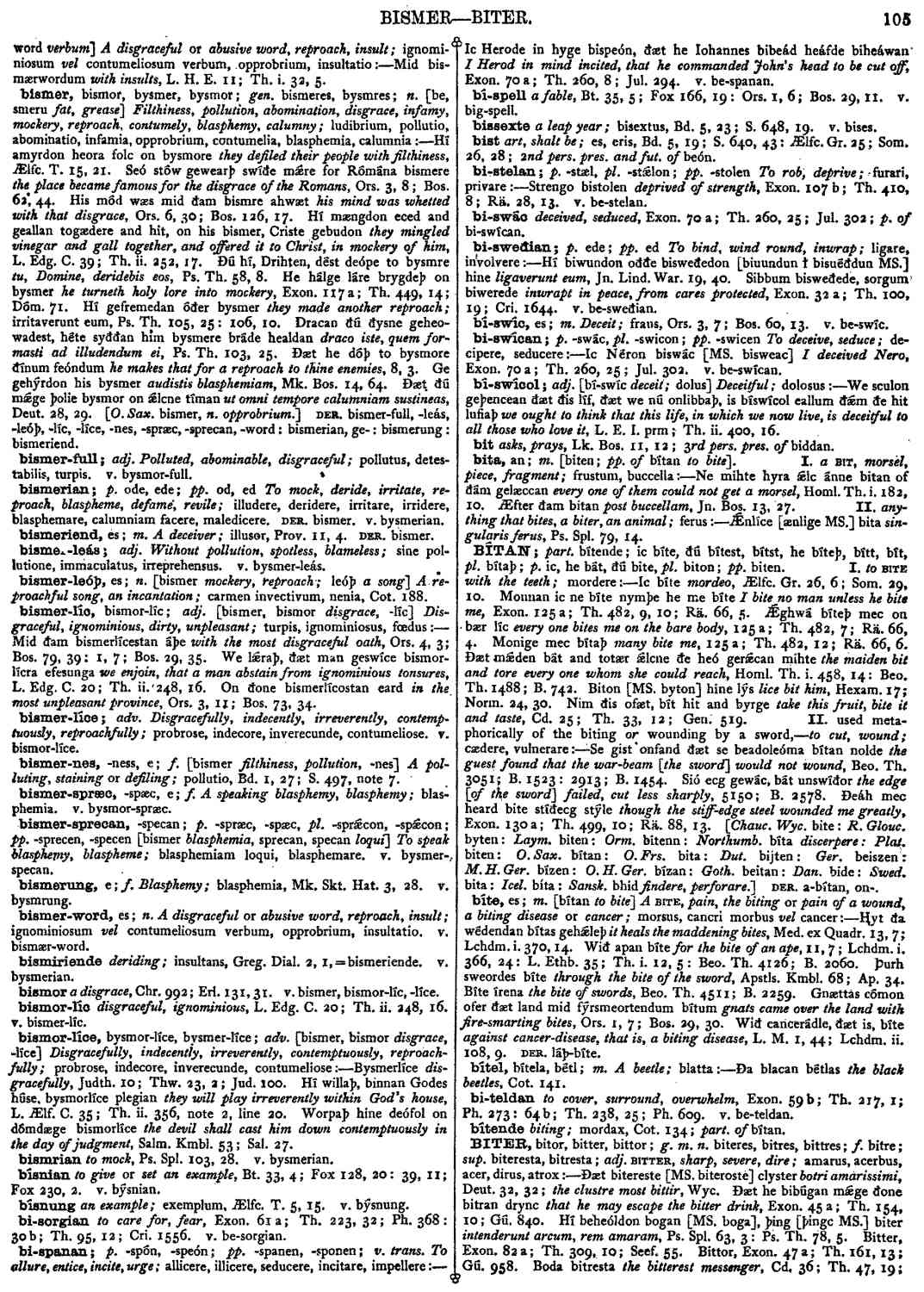bismer
- noun [ neuter ]
-
Hí amyrdon heora folc on bysmore
they defiled their people with filthiness,
- Ælfc. T. 15, 21.
-
Seó stów gewearþ swíðe mǽre for Rómána bismere
the place became famous for the disgrace of the Romans,
- Ors. 3, 8; Bos. 62, 44.
-
His mód wæs mid ðam bismre ahwæt
his mind was whetted with that disgrace,
- Ors. 6, 30; Bos. 126, 17.
-
Hí mængdon eced and geallan togædere and hit, on his bismer, Criste gebudon
they mingled vinegar and gall together, and offered it to Christ, in mockery of him,
- L. Edg. C. 39; Th. ii. 252, 17.
-
Ðú hí, Drihten, dést deópe to bysmre
tu, Domine, deridebis eos,
- Ps. Th. 58, 8.
-
He hálge láre brygdeþ on bysmer
he turneth holy lore into mockery,
- Exon. 117 a; Th. 449, 14; Dóm. 71.
-
Hí gefremedan óðer bysmer
they made another reproach;
irritaverunt eum,- Ps. Th. 105, 25: 106, 10.
-
Dracan ðú ðysne geheowadest, héte syððan him bysmere bráde healdan
draco iste, quem formasti ad illudendum ei,
- Ps. Th. 103, 25.
-
Ðæt he dóþ to bysmore ðínum feóndum
he makes that for a reproach to thine enemies,
- 8, 3.
-
Ge gehýrdon his bysmer
audistis blasphemiam,
- Mk. Bos. 14, 64.
-
Ðæt ðú mǽge þolie bysmor on ǽlcne tíman
ut omni tempore calumniam sustineas,
- Deut. 28, 29.
Bosworth, Joseph. “bismer.” In An Anglo-Saxon Dictionary Online, edited by Thomas Northcote Toller, Christ Sean, and Ondřej Tichy. Prague: Faculty of Arts, Charles University, 2014. https://bosworthtoller.com/4477.
Checked: 0